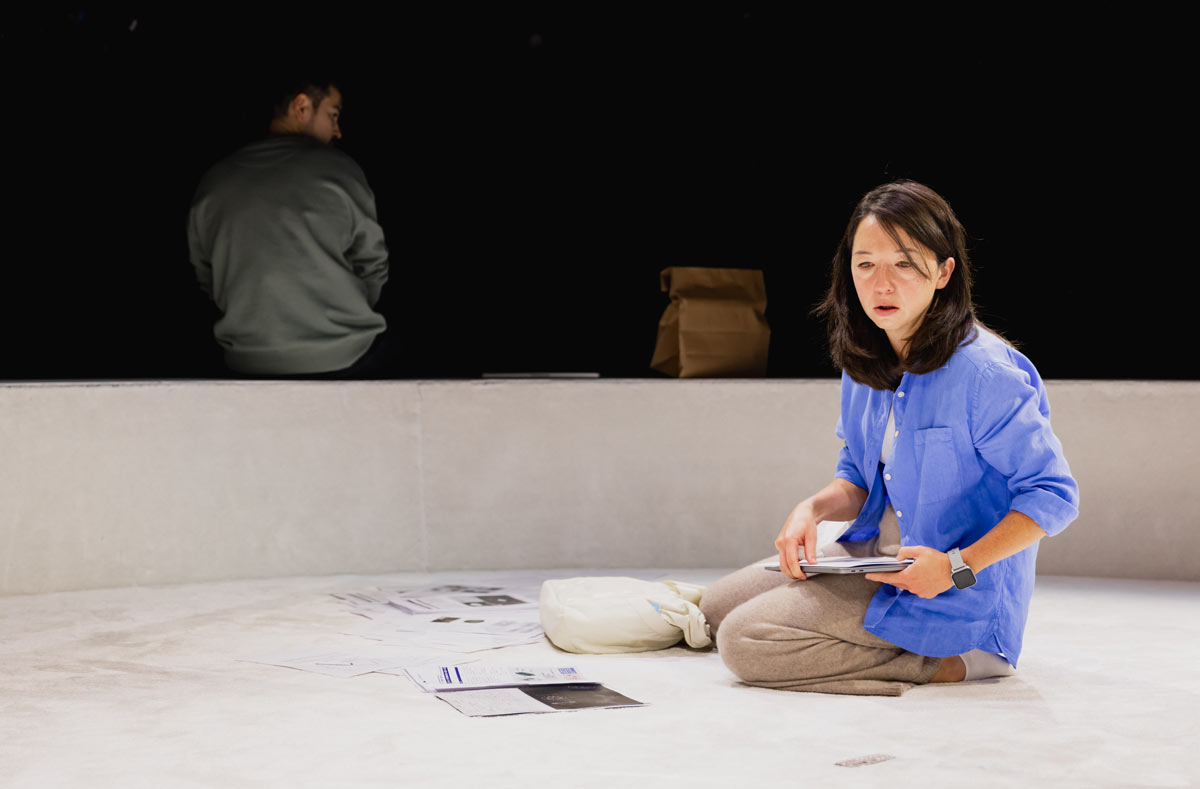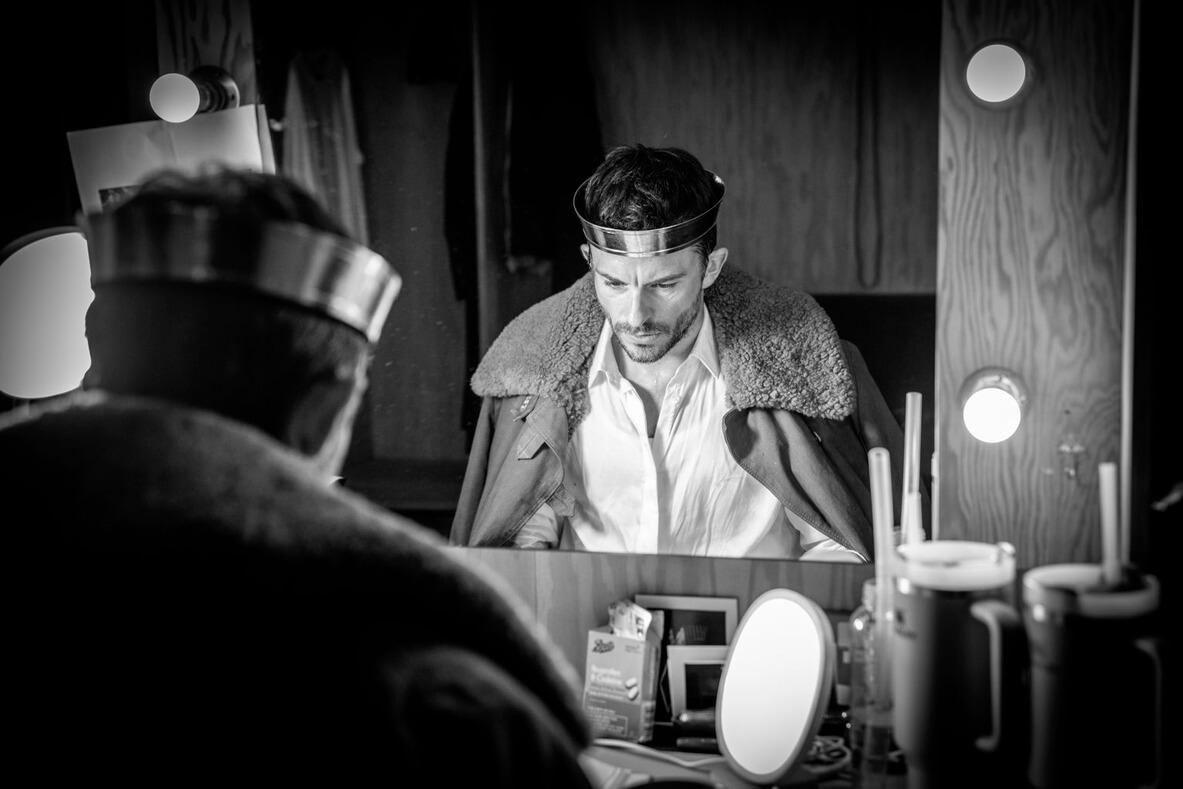As audience members take their seats either side of a slowly revolving white O, we witness Takashi (Mark Takeshi Ota) shuffling various research papers in readiness for an important meeting. He is joined inside the O by Narumi (Susan Momoko Hingley) who we learn is his wife and as it transpires, also part of the moon-shot project whose objectives include colonising Earth's natural satellite due to planetary overpopulation.
So far, so good, even if the opening premise isn't a million miles from previous near-future science-fiction yarns. So what does this story have to commend it? Unfortunately the answer to that deeply relevant question, isn't immediately obvious.
The couple present a somewhat stilted and unfamiliar pairing. We learn that due to the insidious and all-powerful nature of the company they serve (including a presumption that inter-work relationships are frowned upon) the pair haven't been open about their marriage. Now, Narumi is inconveniently pregnant and has two weeks in which to decide what to do about it.
Essentially Narumi's options boil down to, staying on Earth, giving up work and playing mum, or convincing Takeshi to authorise a termination, thereby enabling the two of them to continue with their training and planned journey to the burgeoning moon base. All other options seem to be unrealistic, or unappealing to one or both of them. They argue, often without allowing for the gravity-laden pregnant pauses (no pun intended) time to breathe, such is their rush — like a pair of sulky Kendo fighters, eager to inflict the next point. The effect is akin to watching an emotionally suppressed episode of Eastenders were it to be remade in Japan. The pseudo-intellectualising means that the bickering feels forced and rarely are more meatier matters exposed long enough for due consideration. We are in the realm of inequality of the sexes, set with a backdrop where the fresh start opportunities presented by the moon are already being tarnished due to the inherent imbalance a pregnancy has on biological males and females. Again, it's not especially new territory and the drama - such as it is, could just as easily be set in a 1960s northern English steel town or 1980s Manhattan law firm.
Imagery and symbolism are integral to the futuristic piece, yet a clunky home printer squeezes out document copies and food is provided by a Tokyo equivalent of Deliveroo. Worse still, the set designer eschewed a dividing wall to a bedroom to allow for a late scene in which the two argue either side of a divide. Instead, from the outset we are treated to the bizarre visual of a semi clear-sided toilet cubicle, which as the O revolves, often masks the players. This requires two cameras to relay imagery onto curved screens above the playing area for the duration of the play. At least there was an attempt to make the environment look hi-tech, but the end result presents far more questions than are ever answered in this fundamentally flawed effort.

 Susan Momoko Hingley as Narumi in One Small Step at the Charing Cross Theatre.
Susan Momoko Hingley as Narumi in One Small Step at the Charing Cross Theatre.

